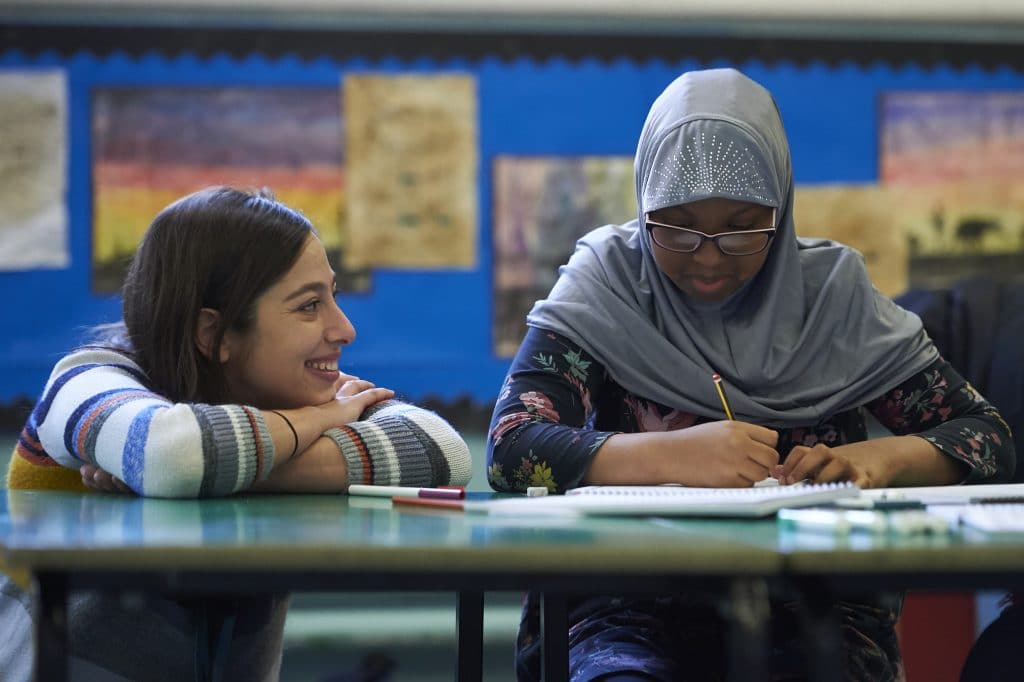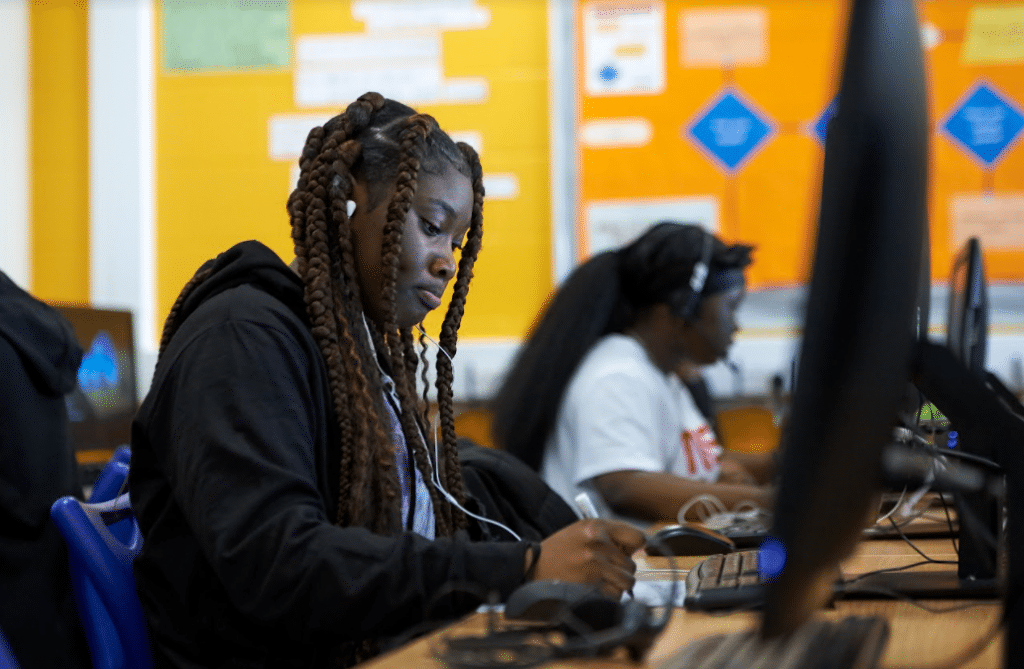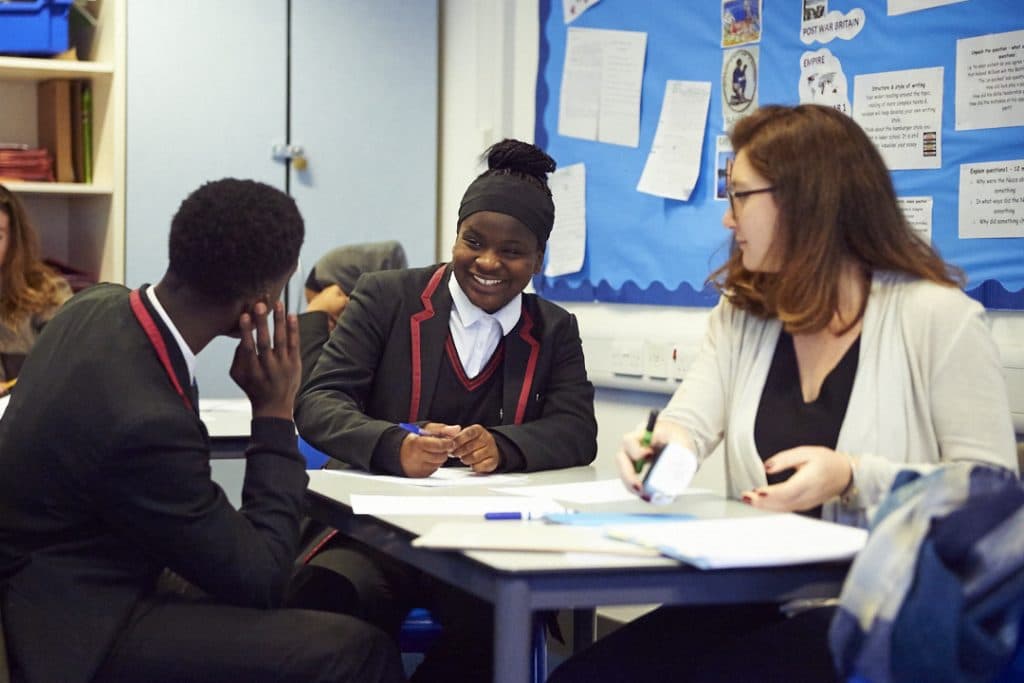Super-speed, teleportation and laser vision cannot help with exams! How pupils can benefit from a REAL superpower: optimism
24 February 2020

When it comes to English and maths, even superpowers can’t save pupils from their dreaded exams! But, what if there were heroes that could educate and inspire them outside of the classroom…? Oh yes, that’s us at Action Tutoring.
It can be hard to motivate and inspire pupils. Thankfully, people study these things for a living and there are plenty of insights in the psychological world to help. Personally, I have come across many articles on learning which have influenced my approach. So, what am I talking about today? Is it a bird? Is it a plane? Oh, right, it’s a book.
About a year ago, I read an interesting book by cognitive psychologist Martin Seligman called “The Power of Optimism.” In it, he proposed that a state of “learned helplessness” could be reversed by changing our thoughts. It really got me thinking. Can the way we choose to think change the automatic thoughts we have towards situations? Can optimistic views be learned? Is there benefit to having an optimistic view towards exams? The answer to all of these, according to some psychologists, is yes.
As tutors, you may have noticed that pupils can be overwhelmed by the prospect of upcoming exams, leaving them liable to put off revision as it can seem like an unsurmountable hurdle. This is counter-intuitive for their success. However, inspiration and confidence-building could allow the pupils to engage actively with their studies and overcome this hurdle. This is where the superpower of optimism comes in. If pupils are programmed to think positively towards the papers, they are more likely to establish the growth mindset that is the hype in educational psychology today. If you haven’t come across this idea before, then let me explain growth mindset. This mindset is the thought process by which a student believes that they CAN do better, that they are not where they want to be “yet.” Over time thought processes can shape our neural pathways (especially in our youth) which is a magical phenomenon known as neural plasticity. Our minds can be moulded and changed by our thoughts. By supporting pupils to view themselves, and their performance, positively, we can help change the approach they have towards their exams. They can be calm and confident instead of a nervous wreck, like I was in my exams. This is all interesting but… what good is it? How can it be applied to help pupils?
To promote a child’s interest in a subject, simply make the work engaging. I know, easier said than done, right? It’s after school at the end of the day, the sun begins to set out of the dreary window and everyone wants to go home. My pupils once told me that their form of revision involved just reading their notes over …and…over…and… over… Yawn, I’m bored just thinking about it. And most importantly don’t forget to tell them that they are doing well and point out their improvements to them. The grades they need are achievable! So go forth my fellow tutors and bestow your pupils with the power of optimism. Just remember, with great power comes great responsibility.
5 things I love about the work we do at Action Tutoring
14 February 2020
What do I love about being part of Action Tutoring’s mission?
For a wholesome, educational take on Valentine’s Day, I’ve pulled together a list of five things I love about the work that we do and the young people we support at Action Tutoring.
The curiosity and humour of the young people we work with
Be they primary or secondary pupils, the children we support never fail to put a huge grin on my face. They are resilient, hard-working, ambitious, and deserve the very best we can give them. Whether it’s first thing in the morning, or the last thing at the end of the day, I’m always touched when my pupils – who have so much on their plates and so many different pressures and deadlines – still find time to ask me how I am, tell me a joke, or share a story. We may be there to tutor maths and English, but the relationships we build bring it all to life.
Being part of so many different school communities
I have felt privileged to learn from and deliver programmes in a whole host of different schools across London. Staff have welcomed me, let me observe their teaching, and collaborated to make Action Tutoring a success for their pupils.
Each teacher is committed to developing and championing their young people academically and pastorally – it’s amazing to see what a difference their care makes to each child!
The diversity of our volunteers
I have been lucky to meet, train, and work alongside so many inspiring people from all walks of life, and see the myriad gifts and skills they bring to us and to our young people. Each volunteer on our programmes brings with them new avenues for connection and new approaches to learning – many have studied outside the UK too, and their perspectives enrich ours. Watching positive working relationships grow between our tutors and pupils is one of the most rewarding parts of my role, and underpins the academic growth of our young people.
Having such supportive, committed colleagues
This job comes with joys and challenges aplenty, but carrying each of us through is a tide of support from our co-workers. The Action Tutoring team – spanning eight cities – is a network brimming with bold and creative ideas, care for how one another are, and complete dedication to the pupils we serve. There are spaces for debate and reflection (and lots of laughter), and I have learnt so much from shared wisdom and feedback from my peers. We strive for better each day, inside and out.
Fostering a deeper connection with my city
Working in the charity sector has allowed me to see different facets of the city I live in, and the places where policies and lived experiences meet one another. I have learnt about and travelled more of London; I have observed in small pockets of the city the relationship between national politics and the individuals it affects; and like colleagues of mine all over the country, I have seen glimpses of the next generation’s potential. I feel more connected to the chaotic and wonderful place I’ve called home for the last five years, and with that comes an ever greater desire to see its youngest flourish.
Read more: How Action Tutoring helps volunteers with their careers
If you’re looking for a way to give back to or connect with your local community, nurture yourself and others, or are interested in joining the team, consider supporting Action Tutoring in a whichever way you feel you can. Donating, tutoring, marking, fundraising, promoting… if you’re keen to help, we’d love to know.
Written by: Anna Warbrick
The Importance of Tutoring
10 February 2020
Every September, a joke goes around university campuses that we have our first day of school coming up. Next year will be my thirtieth first day of school.
When I took up my current position as a lecturer, I wanted to set aside some regular time to volunteer. An education charity was an obvious choice. I chose Action Tutoring because their aim is to help those pupils who would gain the most from a little extra guidance outside of their regular classroom.
If you haven’t set foot in a school this side of the 2008 economic crash — as I hadn’t before I began volunteering — you can’t imagine how different today’s primary and secondary school pupils’ experiences are from what you might remember. More and more, I’ve come to realise how lucky I was. I’ve stayed in education all this time because studying came naturally to me, I enjoyed it, and it remained an option to me. I went to excellent primary and secondary schools, all for free. While I learned a lot (with thanks to my teachers), I didn’t appreciate why my peers might find studying more difficult.
The importance of tutoring
One of the first things you realise when you start tutoring is that there could be any number of reasons a student is struggling, but it’s never being ‘bad’ or just not being able to understand a subject.
My academic field is linguistics, so when I volunteered for the first time and realised that every one of my tutees comes from a home where English is an additional language, I knew that I’d be working with some very intelligent pupils.
By the age of ten, some have learnt English as a third language, and are now studying a fourth in school (together with a second alphabet). This is an achievement for which most adults would laud others. It does mean, though, that my tutees’ parents might not be able to help them with their English homework, or that they’re particularly attuned to the UK’s preoccupation with testing, for example, Spelling-Punctuation-and-Grammar (which, if you were to ask a semi-professional opinion, are as much a test of a rigid writing style as anything else).
So now I spend an hour or two on Friday mornings reading with two or three pupils, working on their vocabulary and comprehension skills. Over the term I’ve taught them, my tutees’ confidence with reading has grown, but I should attribute that to the teachers who work with them every day.
If there’s one thing I know they’ve learned from me so far, it’s how the best strategies for playing Hangman work: vowels are the best letters to ask for first because, if you study phonology, you’ll know every word is broken into syllables, and every syllable in English contains a vowel. After that, continuant sounds like n and r link the vowels to other consonants. And at all times, keep an eye out for complex, but predictable strings of consonants like str or spr at the beginning of a word, or suffixes like -ing at the end. Hopefully, my tutees will put this knowledge to better use in the future, but if they move from Hangman to Scrabble, or to cryptic crosswords (once they get to my age, maybe), I’ll be only too pleased.
Written by: Sam Steddy
At Action Tutoring we believe that tailored and personalised academic support can help pupils improve their subject comprehension and increase their confidence. Our incredible volunteers are committed individuals who believe in equal education opportunities for everyone and their support helps lower the attainment gap between disadvantaged pupils and their peers.
If you would like to find out what our pupils and volunteer tutors have to say about their experience with Action Tutoring, you can read our success stories here.
Ability or attainment: what’s the difference and why does our language matter?
3 February 2020
Speaking about children as high, low or middle ability is commonplace within schools and educational discourse. During my Action Tutoring work week, I regularly hear teachers and tutors use this language when discussing their pupils. They may say “X pupil is really low ability” or refer to groups of pupils as “the highs and the lows”, “the tops and the bottoms”, or even “the best and the worst”. I also often hear Action Tutoring pupils categorise or refer to themselves and their peers in this way.
Given that one primary pupil I spoke to was coincidentally sat in front of a very large Growth Mindset display, this greatly concerned me. However, knowing the current educational climate, which insists on the labelling, categorising and ranking of children, such comments no longer surprise me.
In the UK, children are grouped by their perceived ability from as young as three years old and this label often remains fixed throughout their school career. Disadvantaged pupils are disproportionately represented in low-ability groups and movement between groups is rare.
It is widely known that socio-economic disadvantage is the biggest predictor of academic attainment and that gaps in educational outcomes begin in the early years of education and widen throughout schooling. Labelling children as ‘low ability’ therefore ignores the ways that societal factors impact upon a child’s academic attainment.
At Action Tutoring, we recognise that disadvantaged young people aren’t any less able, but simply have less access to the tools and opportunities which enable them to reach their potential at school. One of the challenges of working with disadvantaged pupils is instilling in them the belief that their current attainment and test scores do not define their capabilities. With high expectations, continued effort, and the support provided by targeted tuition, we know that they can achieve.
When children are grouped by ability at school, it is most often based on prior attainment. However, equating attainment (assessment performance) with ‘ability’ (used in place of potential or intelligence) is neither accurate nor motivating for pupils and educators. Instead, it is this exact language which actively promotes the concept of fixed ability thinking, or the belief that intelligence is fixed, innate and unmalleable. With the growth in popularity of Carol Dweck’s Growth Mindset approach in schools across the country, it seems strange that, for the most part, preconceived notions of ability remain unchallenged in our day-to-day language.
When we label children as ‘low ability’, our expectations of what they can achieve are limited, we set ceilings on their potential and we danger damaging pupils’ self-esteem and long-term aspirations. In contrast, we know that children who are encouraged to have a growth mindset and view ability as malleable are more likely to embrace challenges, display increased confidence and go on to succeed.
By becoming more aware of our language, and by actively choosing to replace the word ‘ability’ with ‘attainment’, we are far more likely to question why a pupil is low attaining, rather than accept their current attainment as indicative of their potential or intelligence. There are a variety of reasons why a child may by low attaining. These may be cognitive, social, behavioural, or attitudinal, yet we need to dismantle the idea that low attainment automatically equals ‘low ability’.
Action Tutoring’s impact is clear; effective, targeted interventions can reduce the attainment gap and work towards breaking the cyclical nature of poverty and disadvantage. To do this, we must have high expectations for all pupils, acknowledge that ability is not fixed, and actively avoid labelling pupils. While changing our language won’t change mindsets over night, I believe it can force us to further challenge our preconceptions of what children and young people can achieve.
To volunteer as a tutor with Action Tutoring, please complete our application form below:







